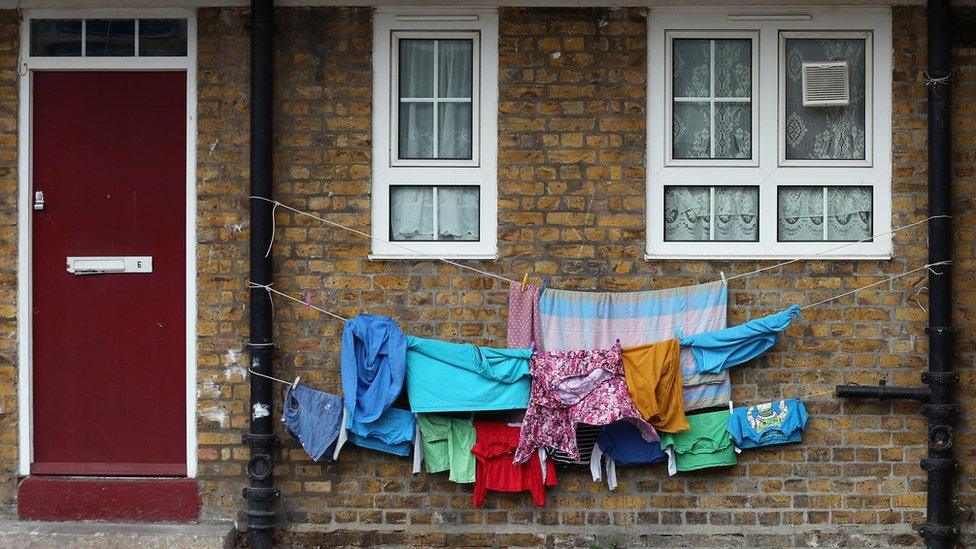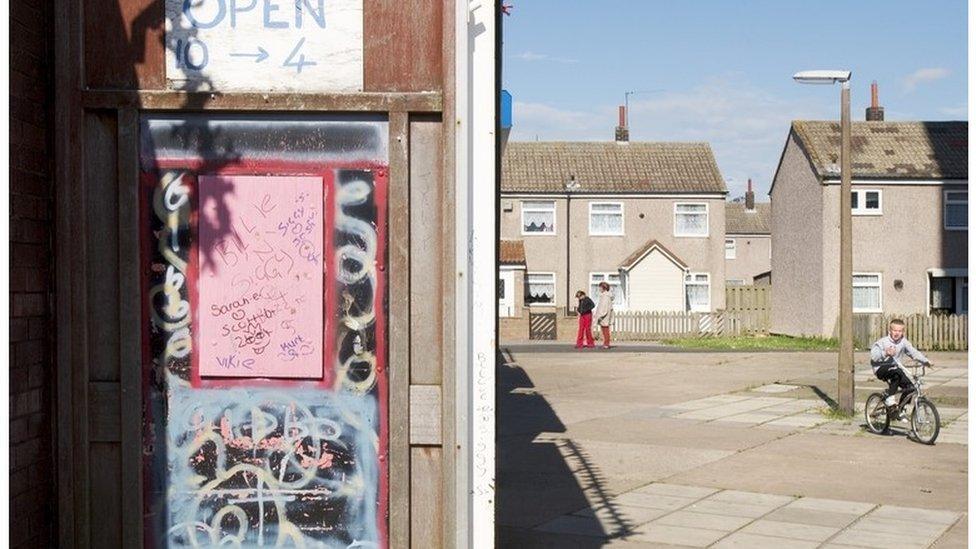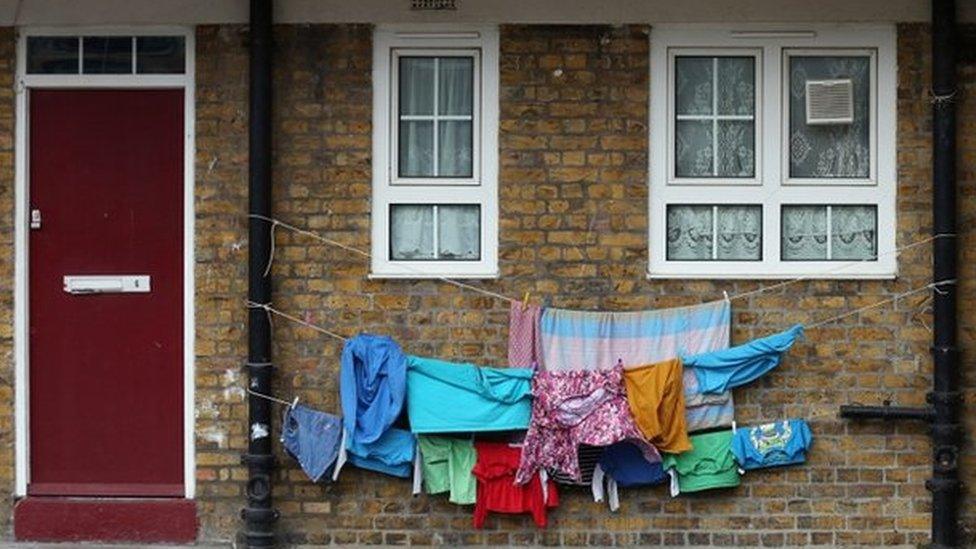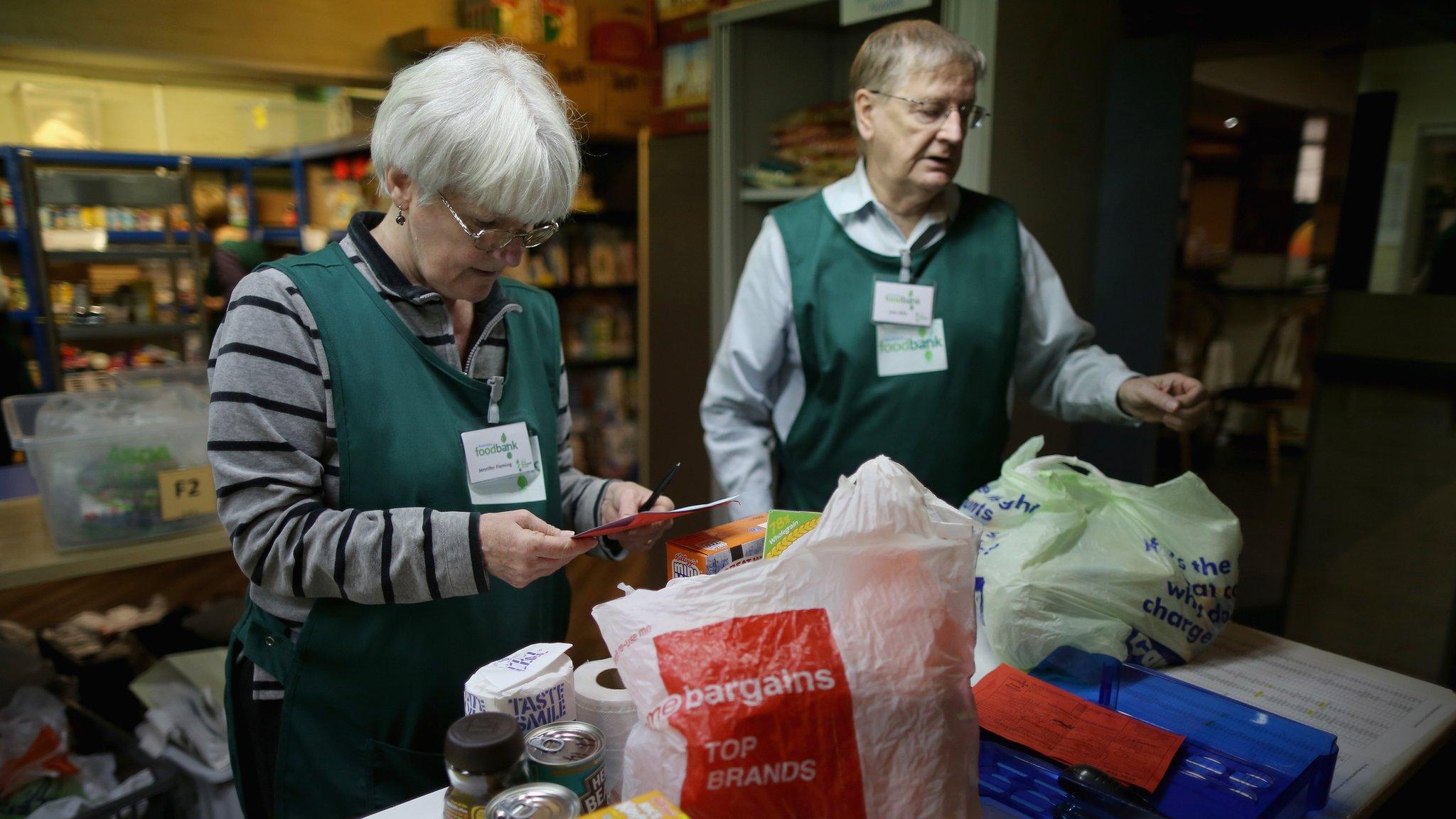Thousands of pupils start school underweight, say MPs
- Published

Some households do not have sufficient income to properly feed their children, says the report
Thousands of children in England started school underweight last year, according to official figures highlighted by MPs.
Rising numbers of children do not get enough to eat, says the All Party Parliamentary Group on Hunger.
"For a minority of children, the school lunchtime represents the only chance each day to eat something substantial," the group reported.
The government said it was committed to an "all-out war" on food poverty.
The report urges the government to use some of the money from the new sugar tax to extend free school meals for poor children into the school holidays.
The government should also make greater efforts to ensure poor families take up their entitlement to vouchers for free milk, fruit and vegetables, it adds.
'Shock increase'
"In an age of rampant child obesity there has been a shock increase in the number of children starting their first and final years of school who are underweight," say the MPs.
They highlight data from the National Child Measurement Programme for England last year which showed:
6,367 children started reception class underweight - up 16% on 2012 figures
7,663 children started their final year of primary school underweight - up 15% since 2012
In addition, House of Commons Library analysis of the most recent data suggested that more than half a million under-fives were anaemic in 2011, the highest level in 20 years.
The report also sets out evidence from a small scale study in Birkenhead showing more than a fifth of pupils in some schools arrive hungry, with some complaining of "persistent hunger".
There is a not enough data to build a full picture, says the report, but there is evidence to suggest "too many children have hunger as their most constant companion".
In "maybe most" of these families, parents do not have sufficient income properly to feed their children, say the MPs.

"Something very troubling is happening," said Frank Field MP
But in certain cases, childhood hunger is in part down to poor parenting and is "part of a bigger picture of neglect", they add.
"Something very troubling is happening and there are at least two forces operating," said the group's chairman, Frank Field.
"One is the breakdown in parenting and the second is an increase in the numbers on a low income.
"It's a tragedy if one of these strikes a child, but it's an unbounded horror if a child is hit by both. How can the world's fifth richest nation not know the extent of physical damage caused to its own children by a lack of food?"
But he suggested the issue was failing to get political traction as voters "no longer believe the data that is published" because of "political warfare" between the government and the Trussell Trust which runs almost half of the food banks around the country.
Former Work and Pensions Secretary Iain Duncan Smith has accused the charity of "scaremongering" in its figures on food poverty.
The MPs say they are working with the United Kingdom Statistics Authority in a bid to obtain better data.
The government said it wanted "to eliminate child poverty and improve life chances for all".
"In the last Budget, we announced £10m of funding per year to expand breakfast clubs in schools up and down the country and have vowed to continue free school meals for more than 1.3 million children," said a spokeswoman.
"We agree with the all-party group that nobody should go hungry, especially when surplus food goes to waste. We will therefore carefully consider the recommendations made in this report."
- Published5 April 2016

- Published27 March 2016

- Published22 April 2015
